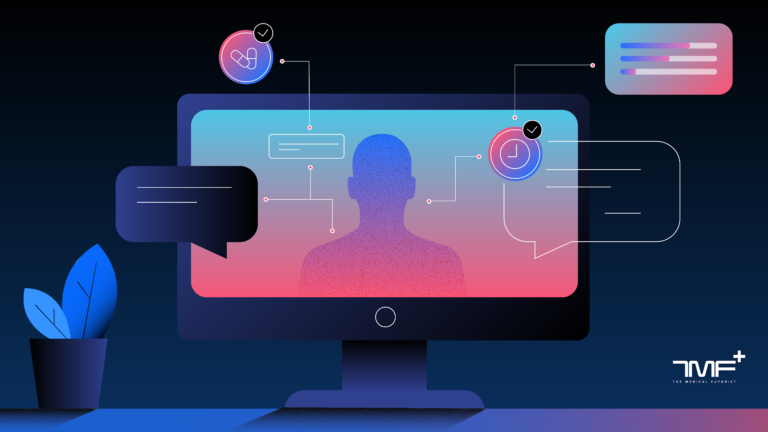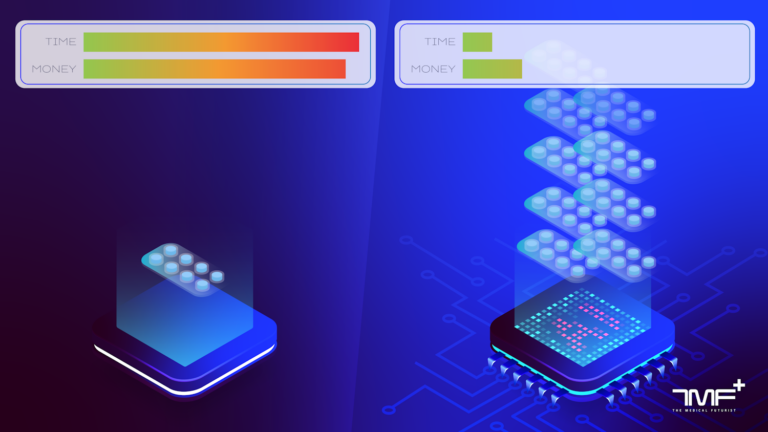The Medical Futurist – Read More
Try to think of your online healthcare experience so far. If you need a remote consultation, you might have to schedule one on a bespoke portal. If you need resources to manage anxiety, you’ll access these from another website. To get additional information on the treatment plan you are following, you will, again, have to find these on another online service. If you are lucky enough to have such features integrated within your remote care platform, you will, at the very least, have to navigate through different tabs or windows for each.
Now, imagine if these were all accessible and presented to you from a single window via simple queries. That’s the idea behind polymorphic artificial intelligence (AI): systems that can adapt and change their behaviour based on the context. While it is a relatively early concept, we consider what such technology could mean for healthcare.
What is polymorphic AI?
In regard to software, a polymorphic algorithm is one where the code can change while maintaining the same functionality. Such a technique has been adopted by malicious computer software to avoid detection. In the AI era, this also seems to be the case, with the first popularised polymorphic AI being a malware proof-of-concept. By employing GPT-based language models it can dynamically hide or modify its code, making it more evasive.

However, the technology has potential beyond nefarious ends. For example, a polymorphic AI assistant could adapt its architecture or even its code paths to improve accuracy or support more features, without significant re-engineering. This would likely involve an agentic AI system or the framework interlinking individual AI agents handling different tasks.
This would allow for not just the lines of code, but also the user interface to adapt based on the user’s needs and queries. In the next section, we contemplate how this could play out in healthcare.
The potentials of polymorphic AI in healthcare
Adopting polymorphic AI systems in healthcare would bring practical value across the landscape. For an early indication of the potential, we discuss three likely use cases below.
1. Personal patient companion
The idea of having an AI companion for patients, guiding them throughout their healthcare journey, has been an attractive one. Current AI agents, such as those from Amelia, can assist patients in managing their appointments and get answers to non-clinical questions.
With an underlying polymorphic architecture, a patient could converse with such an agent, either by typing or talking, and will be able to schedule appointments, connect to their clinicians, get medication reminders and get up to date with the latest developments regarding their condition.
All of these would be available from a single, flexible dashboard which can adapt its interface based on the patient’s current needs. If the patient asks a question about a medication, the polymorphic AI agent would adopt the look of a search tool. If they need a reminder for a physiotherapy exercise, the agent will turn into a video player. This level of flexibility, thanks to interactions with different AI agents, could reduce friction in the patient experience.

2. Clinician assistant
In the digital health age, clinicians have to navigate through a wealth of digital patient data. By simply feeding a polymorphic AI system with such information, they could be categorised and flagged for suspicious signs.
It could further link clinicians with respective team members and specialists for additional analyses and provide tailored recommendations for individual patients. The team could ask the system to bring up the patient’s blood test and radiological scans, which would be presented on the same interface.
By streamlining clinical processes, polymorphic AI systems could support personalised decision-making for individual patients.
3. Drug development aid
The input of AI in the drug development process, from the identification of targets to the post-clinical trial stage, has enticed the pharmaceutical industry to adopt the technology. This input could be taken one step further with polymorphic systems.
With a polymorphic architecture, AI-aided drug discovery could consider alternate drug targets or simulation settings to explore new, more efficient parameters. Such an approach could accelerate the discovery workflow.
The same tool could provide, upon request, a market analysis relevant to the drug under development and produce a custom report.

Risks and limitations
The major limitation to polymorphic AI in healthcare is that it currently resides in theoretical realms. There is no such system publicly available, and it might not become a major trend soon. However, its application remains a possibility, and it’s worth considering the risks.
Primarily, as polymorphic AI malware has already been studied, the same risk could translate to healthcare. Malicious third parties could create polymorphic, evasive AI malware that are able to bypass traditional defences. This would require adequate measures to be countered, which could pose a challenge to the IT security team if they are not prepared for such attacks.
This calls back to the need for regulatory agencies to revise and update their guidance for AI-supported healthcare software. By enforcing safety and reliability over such systems, trust among users can be built, who can benefit from an enhanced healthcare experience.
Written by Dr. Bertalan Meskó & Dr. Pranavsingh Dhunnoo
The post Polymorphic AI In Healthcare: Potentials And Promises appeared first on The Medical Futurist.





